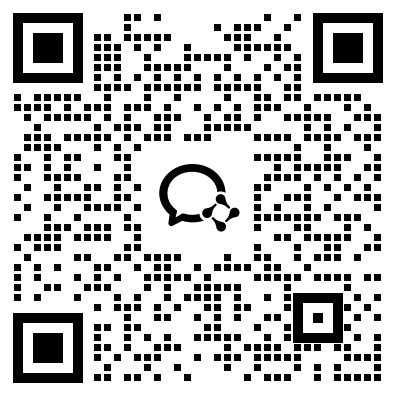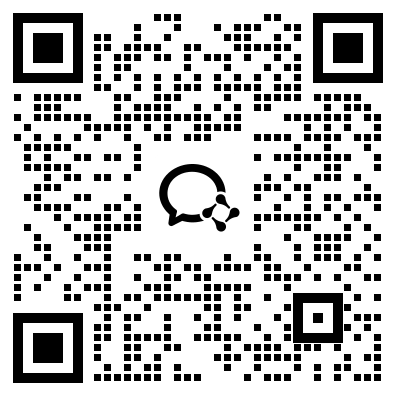特惠-26考研冲刺
特惠-27考研课
双证-在职硕士
免联考-同等学力
复试分数线
26复试全面指导
模拟复试面试
26考研-全套真题
26考研估分
保研-路线图
27考研-智能择校
27考研-英语测评
27考研-新大纲对比
热门-计算机择校

扫码加入训练营
牢记核心词
学习得礼盒
Text 3
Even in traditional offices, “the lingua franca of corporate America has gotten much more emotional and much more right-brained than it was 20 years ago,” said Harvard Business School professor Nancy Koehn. She started spinning off examples. “If you and I parachuted back to Fortune 500 companies in 1990, we would see much less frequent use of terms like journey, mission, passion. There were goals, there were strategies, there were objectives, but we didn’t talk about energy; we didn’t talk about passion.”
Koehn pointed out that this new era of corporate vocabulary is very “team”-oriented—and not by coincidence. “Let’s not forget sports—in male-dominated corporate America, it’s still a big deal. It’s not explicitly conscious; it’s the idea that I’m a coach, and you’re my team, and we’re in this together. There are lots and lots of CEOs in very different companies, but most think of themselves as coaches and this is their team and they want to win.”
These terms are also intended to infuse work with meaning—and, as Khurana points out, increase allegiance to the firm. “You have the importation of terminology that historically used to be associated with non-profit organizations and religious organizations: Terms like vision, values, passion, and purpose,” said Khurana.
This new focus on personal fulfillment can help keep employees motivated amid increasingly loud debates over work-life balance. The “mommy wars” of the 1990s are still going on today, prompting arguments about why women still can’t have it all and books like Sheryl Sandberg’s Lean In, whose title has become a buzzword in its own right. Terms like unplug, offline, life-hack, bandwidth, and capacity are all about setting boundaries between the office and the home. But if your work is your “passion,” you’ll be more likely to devote yourself to it, even if that means going home for dinner and then working long after the kids are in bed.
But this seems to be the irony of office speak: Everyone makes fun of it, but managers love it, companies depend on it, and regular people willingly absorb it. As Nunberg said, “You can get people to think it’s nonsense at the same time that you buy into it.” In a workplace that’s fundamentally indifferent to your life and its meaning, office speak can help you figure out how you relate to your work—and how your work defines who you are.
31. According to Nancy Koehn ,office languages become_____.
[A] more emotional
[B] more objective
[C] less energetic
[D] less strategic
32.”Team”-oriented corporate vocabulary is closely related to_____.
[A] historical incidents
[B] gender difference
[C] sports culture
[D] athletic executives
33.Khurana believes that the importation of terminology aims to_____.
[A] revive historical terms
[B] promote company image
[C] forster corporate cooperation
[D] strengthen employee loyalty
34.It can be inferred that Lean In_____.
[A]voices for working women
[B] appeals to passionate workaholics
[C] triggers debates among mommies
[D] praises motivated employees
35.Which of the following statements is ture about office speak?
[A]Managers admire it but avoid it.
[B] Linguists believe it to be nonsense.
[C]Companies find it to be fundamental.
[D] Regular people mock it but accept it.
【英语二真题】资料这里有↑↑↑
本文关键字: 2015考研英语二真题 2015考研英语二答案

 资料下载
资料下载
2014年-2025年考研历年真题汇总
发布时间:2024-04-25扫码添加【考研班主任】
即可领取资料包
考研大纲PDF电子版下载-历年(附解析)
发布时间:2024-04-25扫码添加【考研班主任】
即可领取资料包
2026年考研政数英备考资料zip压缩包
发布时间:2024-04-25扫码添加【考研班主任】
即可领取资料包
考研英语大纲词汇5500打印版(基础必备)
发布时间:2024-04-25扫码添加【考研班主任】
即可领取资料包
新东方在线考试模拟题【12套】
发布时间:2024-04-25扫码添加【考研班主任】
即可领取资料包
2026年考研专业课知识点总结
发布时间:2024-04-25扫码添加【考研班主任】
即可领取资料包
新东方考研资料下载地址
发布时间:2023-05-17新东方在线考研资料合集
下载方式:微信扫码,获取网盘链接

目录:
1.2013-2023年近10年政数英真题及解析PDF版(新东方)
2.2013-2023年专业课考试历年真题及解析PDF版
3.24考研复习备考资料大合集:大纲+备考资料+词汇书+考前押题+自命题
资料介绍:
1.2013-2023年近10年政数英真题及解析PDF版(新东方)
 、
、
2.2013-2023年专业课考试历年真题及解析PDF版


3.24考研复习备考资料大合集

3.24考研复习备考资料:考研大纲

3.24考研复习备考资料:政数英备考资料+自命题真题

------------------
考研备考过程中,尤其是专业课部分,参考往年的考试真题,对于我们的复习有更好的帮助。北京大学考研真题资料都有哪些?小编为大家进行了汇总。
北京大学考研真题资料-公共课

北京大学考研真题资料-专业课


以上就是关于“北京大学考研真题资料下载(历年汇总)”的整理,更多考研资料下载,请关注微信获取下载地址。
2024考研公共课必背知识点汇总
发布时间:2023-01-03扫码添加【考研班主任】
即可领取资料包
2013-2023考研历年真题汇总
发布时间:2023-01-03扫码添加【考研班主任】
即可领取资料包
考研英语大纲词汇(PDF可打印)
发布时间:2023-01-03扫码添加【考研班主任】
即可领取资料包
2024考研专业课知识点总结
发布时间:2023-01-03扫码添加【考研班主任】
即可领取资料包
2023考研政治 内部押题 PDF
发布时间:2022-11-16扫码添加【考研班主任】
即可领取资料包
徐涛:23考研预测六套卷
发布时间:2022-11-16扫码添加【考研班主任】
即可领取资料包
考研政数英冲刺资料最新整理
发布时间:2022-11-16扫码添加【考研班主任】
即可领取资料包
23考研答题卡模板打印版
发布时间:2022-11-16扫码添加【考研班主任】
即可领取资料包
2023考研大纲词汇5500PDF电子版
发布时间:2022-07-28扫码添加【考研班主任】
即可领取资料包
考研历年真题(公共课+专业课)
发布时间:2022-07-28扫码添加【考研班主任】
即可领取资料包
考研英语阅读100篇附解析及答案
发布时间:2022-01-07扫码添加【考研班主任】
即可领取资料包
新东方考研学霸笔记整理(打印版)
发布时间:2022-01-07扫码添加【考研班主任】
即可领取资料包
2001-2021年考研英语真题答案(可打印版)
发布时间:2022-01-07扫码添加【考研班主任】
即可领取资料包
考研英语词汇5500(完整版下载)
发布时间:2022-01-07扫码添加【考研班主任】
即可领取资料包
2022考研政审表模板精选10套
发布时间:2022-01-07扫码添加【考研班主任】
即可领取资料包
历年考研真题及答案 下载
发布时间:2021-12-09扫码添加【考研班主任】
即可领取资料包
考研政审表模板汇总
发布时间:2020-06-17扫码添加【考研班主任】
即可领取资料包
近5年考研英语真题汇总
发布时间:2020-06-17扫码添加【考研班主任】
即可领取资料包
考研英语大纲词汇5500
发布时间:2020-06-17扫码添加【考研班主任】
即可领取资料包
2022考研12大学科专业排名汇总
发布时间:2019-11-21扫码添加【考研班主任】
即可领取资料包
2023考研政治复习备考资料【珍藏版】
发布时间:2019-11-21扫码添加【考研班主任】
即可领取资料包
考研英语万能模板+必备词汇+范文
发布时间:2019-11-21扫码添加【考研班主任】
即可领取资料包
考研数学一、二、三历年真题整理
发布时间:2019-11-21扫码添加【考研班主任】
即可领取资料包

添加班主任领资料
添加考研班主任
免费领取考研历年真题等复习干货资料

 推荐阅读
推荐阅读
2025年考研初试结束后,新东方在线为大家整理了:2025年考研英语二真题及答案解析(完整版),供大家参考,同时也为大家提供了电子版文
2025年考研初试结束后,新东方在线为大家整理了:2025年考研英语二真题及答案解析(电子版下载),供大家参考,同时也为大家提供了电子
2025年考研初试结束后,新东方在线为大家整理了:2025年考研英语二新题型真题答案,供大家参考,同时也为大家提供了电子版文档直接下载
2025年考研初试结束后,新东方在线为大家整理了:2025年考研英语二完形填空真题答案,供大家参考,同时也为大家提供了电子版文档直接下
2025年考研初试结束后,新东方在线为大家整理了:2025年考研英语二翻译真题答案,供大家参考,同时也为大家提供了电子版文档直接下载,

 资料下载
资料下载
扫码添加【考研班主任】
即可领取资料包
扫码添加【考研班主任】
即可领取资料包
扫码添加【考研班主任】
即可领取资料包
扫码添加【考研班主任】
即可领取资料包
扫码添加【考研班主任】
即可领取资料包
扫码添加【考研班主任】
即可领取资料包
新东方在线考研资料合集
下载方式:微信扫码,获取网盘链接

目录:
1.2013-2023年近10年政数英真题及解析PDF版(新东方)
2.2013-2023年专业课考试历年真题及解析PDF版
3.24考研复习备考资料大合集:大纲+备考资料+词汇书+考前押题+自命题
资料介绍:
1.2013-2023年近10年政数英真题及解析PDF版(新东方)
 、
、
2.2013-2023年专业课考试历年真题及解析PDF版


3.24考研复习备考资料大合集

3.24考研复习备考资料:考研大纲

3.24考研复习备考资料:政数英备考资料+自命题真题

------------------
考研备考过程中,尤其是专业课部分,参考往年的考试真题,对于我们的复习有更好的帮助。北京大学考研真题资料都有哪些?小编为大家进行了汇总。
北京大学考研真题资料-公共课

北京大学考研真题资料-专业课


以上就是关于“北京大学考研真题资料下载(历年汇总)”的整理,更多考研资料下载,请关注微信获取下载地址。
扫码添加【考研班主任】
即可领取资料包
扫码添加【考研班主任】
即可领取资料包
扫码添加【考研班主任】
即可领取资料包
扫码添加【考研班主任】
即可领取资料包
扫码添加【考研班主任】
即可领取资料包
扫码添加【考研班主任】
即可领取资料包
扫码添加【考研班主任】
即可领取资料包
扫码添加【考研班主任】
即可领取资料包
扫码添加【考研班主任】
即可领取资料包
扫码添加【考研班主任】
即可领取资料包
扫码添加【考研班主任】
即可领取资料包
扫码添加【考研班主任】
即可领取资料包
扫码添加【考研班主任】
即可领取资料包
扫码添加【考研班主任】
即可领取资料包
扫码添加【考研班主任】
即可领取资料包
扫码添加【考研班主任】
即可领取资料包
扫码添加【考研班主任】
即可领取资料包
扫码添加【考研班主任】
即可领取资料包
扫码添加【考研班主任】
即可领取资料包
扫码添加【考研班主任】
即可领取资料包
扫码添加【考研班主任】
即可领取资料包
扫码添加【考研班主任】
即可领取资料包
扫码添加【考研班主任】
即可领取资料包

 阅读排行榜
阅读排行榜
 相关内容
相关内容